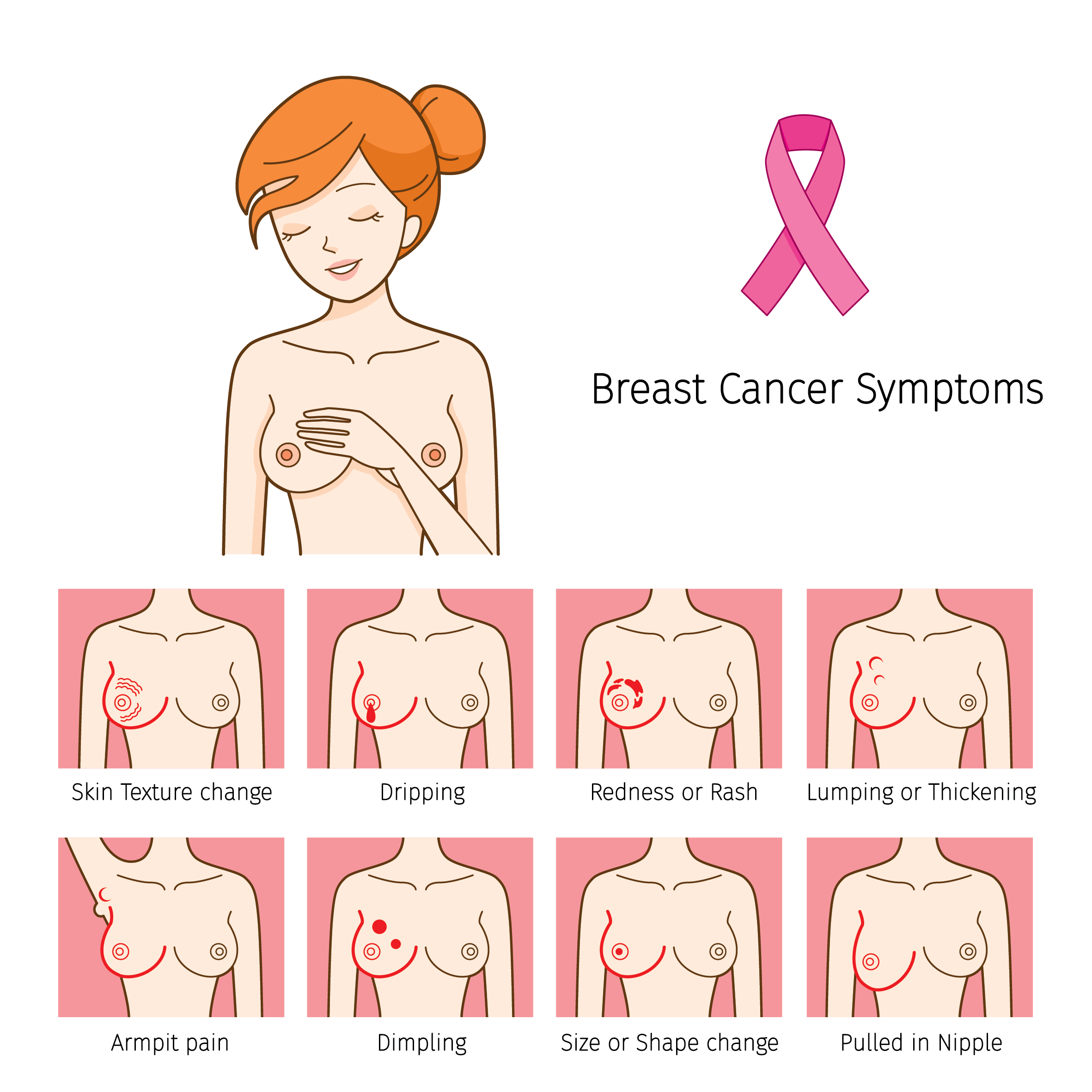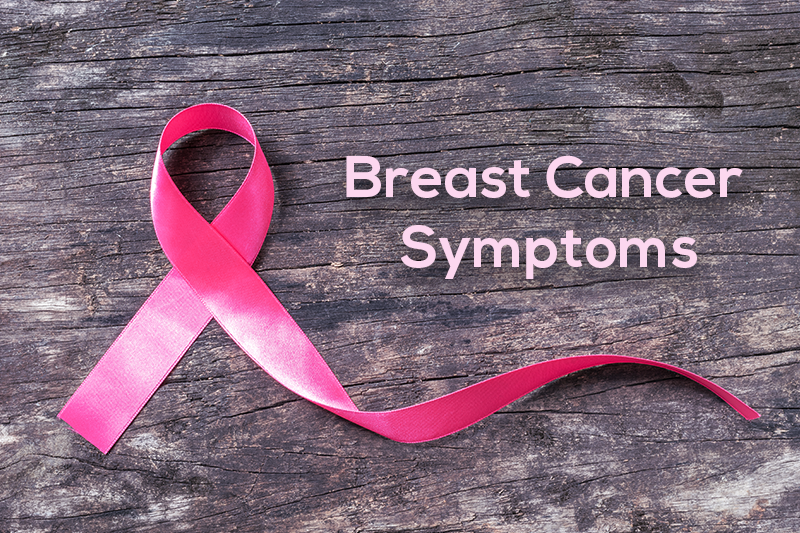We all know the dangers of googling ourselves down a rabbit hole of disease symptoms and the anxiety it can bring. When it comes to breast cancer symptoms, there are no hard and fast rules. Symptoms vary from person to person (which can be even more anxiety inducing). Different types of breast cancer can present different symptoms as well. If you notice changes in your breasts, check with your doctor ASAP. Otherwise, here are the most common breast cancer symptoms to look out for, according to Cancer Center.
Breast cancer symptoms
- Lump in the breast
- Lump in your armpit
A lump can be distressing, but a lump is not always a sign of breast cancer. For example, a fibrocystic condition can cause noncancerous changes in the breasts that can make them lumpy, tender, and sore. But a lump in the breast or in your armpit can also be an early warning sign of breast cancer, including invasive breast cancer. If you notice a new lump or mass, your doctor can help you determine the cause.
- Skin changes: swelling, redness, or other visible differences in one or both breasts
- Changes in the appearance of one or both nipples
- Nipple discharge
- Pain in any part of the breast

Invasive breast cancer symptoms
Invasive ductal carcinoma accounts for 80 percent of invasive breast cancers. It typically begins in the milk duct and then spreads to the fatty breast tissue outside the duct. Invasive breast cancer has its own set of symptoms, including:
- Irritated or itchy breasts
- Change in breast color
- Increase in breast size or shape (over a short period of time)
- Changes in touch (may feel hard, tender, or warm)
- Peeling or flaking of the nipple skin
- A breast lump or thickening
- Redness or pitting of the breast skin (like the skin of an orange)
Get a mammogram
There is no such thing as a normal or typical breast, since every woman is different. It’s common to have breasts that vary slightly in size compared to each other or to have breasts that normally feel lumpy or uneven. It’s important to note that hormonal changes — menstrual periods, gaining weight, menopause, etc. — can cause changes in your breasts, too. So what isn’t normal? If you experience any sudden changes in your breasts, including those listed above, be sure to see your doctor right away. And be sure you’re getting an annual mammogram if you are age 45 to 55 — or earlier if you carry the BRCA gene or are otherwise at high risk for breast cancer.
FemmePharma has been helping women navigate menopause for over two decades. No matter where you are in your journey, you deserve to have knowledgeable, intimate healthcare partners to help you feel your best. Explore our other articles, podcast episodes with women’s health experts, and products to ease your transition into menopause.



